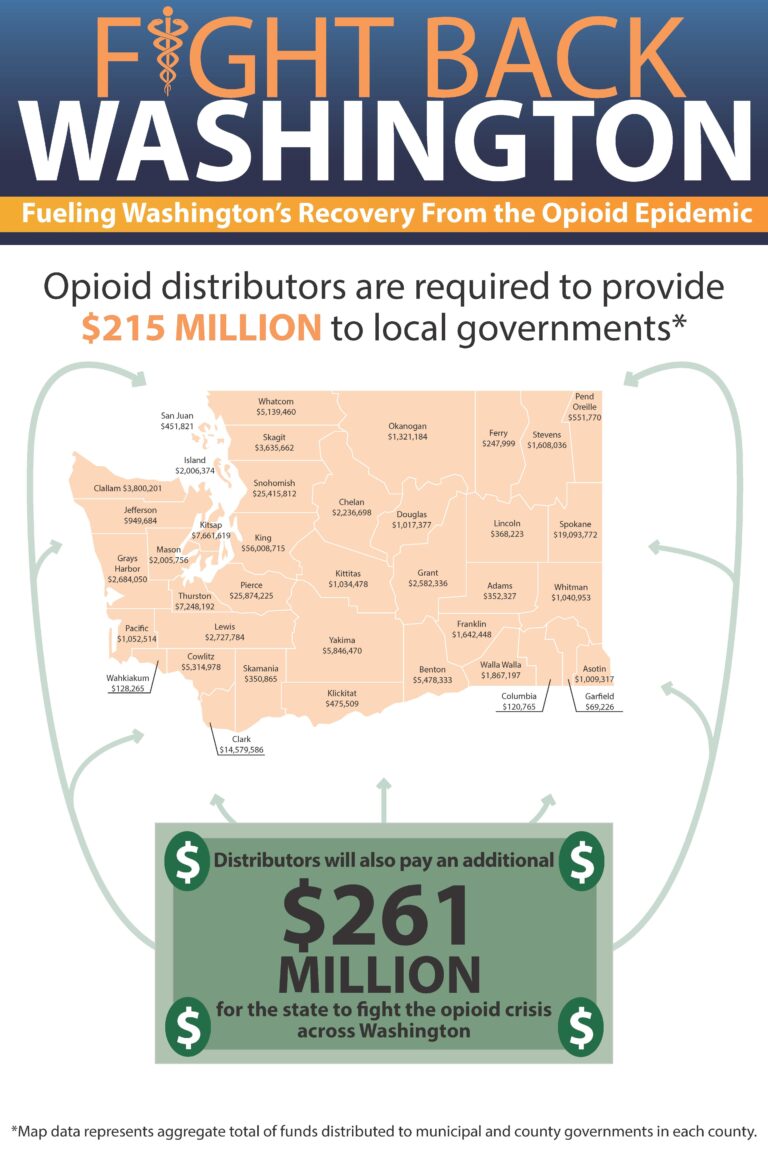Washington State’s Innovative Approach: Schools at the Forefront of Opioid Prevention
As the opioid crisis relentlessly impacts communities nationwide, Washington State is adopting a novel strategy by positioning public schools as pivotal arenas in the fight against opioid misuse. By embedding prevention initiatives and broadening educational outreach, state authorities are empowering youth with essential knowledge and coping mechanisms to deter opioid abuse before it begins. This approach highlights the critical importance of early intervention, community engagement, and youth-focused solutions in addressing this public health emergency.
Public Schools: A Strategic Battleground Against Opioid Misuse in Washington
Washington’s educational institutions have become instrumental in the state’s efforts to counteract the opioid epidemic. Schools offer a unique platform to engage young individuals early, delivering targeted prevention programs that inform students about the risks associated with opioid use. These efforts encompass a variety of methods, including integrated drug education curricula, student-led support initiatives, and collaborations with local healthcare providers to offer on-site counseling. By nurturing awareness and resilience, these programs aim to reduce the likelihood of addiction developing among youth.
Core initiatives currently active in Washington schools include:
- Embedding opioid education within health and science syllabi
- Equipping teachers with skills to detect early signs of substance misuse
- Providing confidential mental health support tailored to vulnerable students
- Engaging parents and guardians through outreach to reinforce prevention efforts at home
| District | Program Type | Number of Students Served (2023) |
|---|---|---|
| Seattle Public Schools | Student peer counseling and education | 15,000 |
| Spokane School District | Curriculum-based prevention and family workshops | 8,500 |
| Tacoma Public Schools | Educator training and mental health services | 10,200 |
Building Lifelong Resilience: Expanding Educational Programs in Washington
In light of the growing opioid crisis, Washington State is advancing comprehensive educational programs designed to foster resilience and informed decision-making skills among students. These initiatives go beyond mere awareness, focusing on developing emotional intelligence, problem-solving abilities, and stress management techniques. By integrating these competencies early in students’ academic journeys, the state aims to equip them with the tools necessary to face life’s challenges without resorting to substance use.
Key features of these programs include:
- Engaging workshops that promote open conversations and reduce stigma around addiction
- Peer mentorship schemes that cultivate supportive school environments
- Family involvement activities to extend resilience-building beyond the classroom
- Holistic counseling services aligned with educational content for comprehensive support
| Program Emphasis | Target Grade Levels | Anticipated Benefits |
|---|---|---|
| Emotional Resilience Development | Grades 6-8 | Improved self-regulation and coping mechanisms |
| Opioid Awareness and Prevention | Grades 9-12 | Greater knowledge and decreased experimentation |
| Peer Support Networks | All Grades | Enhanced community bonds and reduced isolation |
Synergizing Education and Public Health: A Collaborative Model to Reduce Addiction
Washington State officials stress that effectively tackling opioid addiction demands a collaborative approach that merges educational efforts with public health expertise. Schools function not only as centers for learning but also as critical sites for early detection and intervention. Educators and health professionals jointly identify students at risk, enabling timely support before substance use escalates. This partnership involves the deployment of evidence-based prevention programs and continuous professional development for school staff to recognize addiction indicators.
Highlights of this cooperative framework include:
- Health-led workshops for educators and students to enhance awareness
- Jointly crafted, age-appropriate curricula focusing on addiction education
- Community outreach initiatives linking families to local treatment and support services
| Initiative | Measured Impact |
|---|---|
| Professional Development for Teachers | 40% increase in early identification of at-risk students |
| Student-Focused Awareness Campaigns | 25% reduction in opioid experimentation rates |
| Family Engagement Programs | 30% rise in referrals to treatment services |
Comprehensive Support Networks for Students and Families Affected by Opioids
Across Washington, schools are implementing layered support systems designed to meet the multifaceted needs of students and families impacted by opioid misuse. These frameworks emphasize early detection through routine screenings and foster collaboration among educators, counselors, healthcare providers, and social workers. Key elements include confidential counseling, peer-led support groups, and educational workshops for families, all aimed at promoting recovery and resilience within the home environment.
The following table outlines the primary components of these support systems:
| Support Element | Main Goal | Involved Stakeholders |
|---|---|---|
| Early Risk Screening | Detect students vulnerable to substance misuse | Teachers, School Nurses |
| Counseling and Therapy | Offer emotional and psychological assistance | School Counselors, Licensed Therapists |
| Family Education Workshops | Provide knowledge on prevention and recovery strategies | Community Educators, Social Workers |
| Peer Support Circles | Facilitate shared experiences and coping skills | Students, Trained Mentors |
Final Thoughts: Empowering Future Generations to Overcome the Opioid Crisis
As the opioid epidemic continues to challenge communities throughout Washington, the state’s innovative focus on schools as a frontline defense marks a significant advancement in prevention efforts. By weaving together education, prevention, and comprehensive support within the school environment, Washington is equipping its youth with the resilience and resources necessary to resist opioid misuse. Although obstacles persist, these proactive measures offer hope for mitigating the epidemic’s impact and fostering healthier, more resilient communities across the state.







